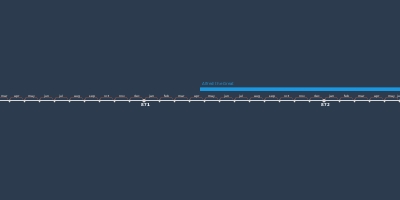Henry the Fowler (may 24, 919 – jul 2, 936)
Description:
Duke of Saxony from 912 and the elected king of East Francia (Germany) from 919 until his death in 936. As the first non-Frankish king, he established the Ottonian Dynasty of kings and emperors, and he is generally considered to be the founder and first king of the medieval German state, known until then as East Francia. An avid hunter, he obtained the epithet "the Fowler" because he was allegedly fixing his birding nets when messengers arrived to inform him that he was to be king. In 912 his father died and the new duke launched a rebellion against the king of East Francia, Conrad I of Germany, over the rights to lands in the Duchy of Thuringia. They reconciled in 915 and on his deathbed in 918, Conrad recommended Henry as the next king, considering the duke the only one who could hold the kingdom together in the face of internal revolts and external Magyar raids. Henry was elected and crowned king in 919. He went on to defeat the rebellious dukes of Bavaria and Swabia, consolidating his rule. Through successful warfare and a dynastic marriage to Matilda of Ringelheim, Henry acquired Lotharingia as a vassal in 925. Unlike his Carolingian predecessors, Henry did not seek to create a centralized monarchy, ruling through federated autonomous stem duchies instead. Henry built an extensive system of fortifications and mobile heavy cavalry across Germany to neutralize the Magyar threat and in 933 routed them at the Battle of Riade, ending Magyar attacks for the next 21 years and giving rise to a sense of German nationhood. Henry greatly expanded German hegemony in Europe with his defeat of the Slavs in 929 at the Battle of Lenzen along the Elbe river, by compelling the submission of Duke Wenceslaus I of Bohemia through an invasion of the Duchy of Bohemia the same year and by conquering Danish realms in Schleswig in 934. Henry's hegemonic status north of the Alps was acknowledged by King Rudolph of West Francia and King Rudolph II of Upper Burgundy, who both accepted a place of subordination as allies in 935. Henry planned an expedition to Rome to be crowned as Holy Roman Emperor by the Pope, but the design was thwarted by a hunting accident near the royal palace of Bodfeld in the autumn of 935 that mortally injured him. Henry prevented a collapse of royal power, as had happened in West Francia, and left a much stronger kingdom to his son and successor Otto I.Added to timeline:
Date:
may 24, 919
jul 2, 936
~ 17 years
